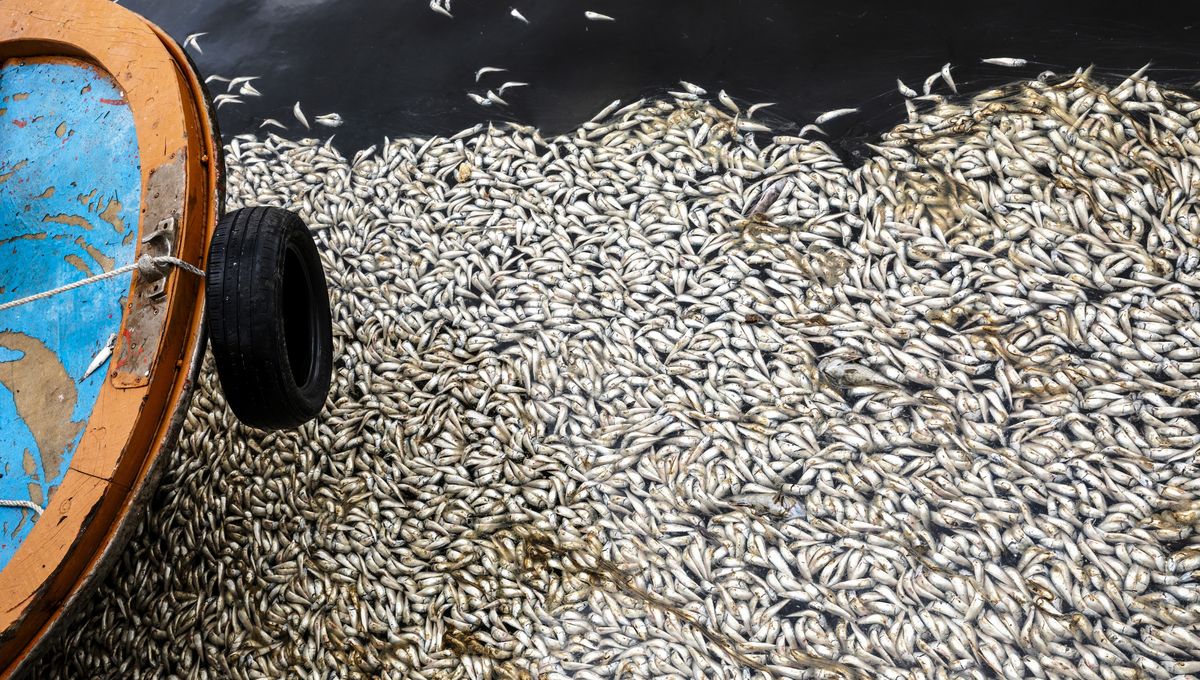
Around 1,200 tonnes of fish have washed ashore along the coast of Japan. While the cause is still under investigation, authorities were keen to dampen conspiracy theories that it’s related to the recent release of water from the Fukushima nuclear power plant.
Colossal quantities of dead sardines and mackerel have washed up along a stretch of the coastline of the city of Hakodate on Japan’s northernmost island since December 7, according to the Asahi Shimbun.
Nearly 900 kilometers (560 miles) away at Nakiri fishing port in Central Japan’s Shima, another huge load of Japanese scaled sardines, or sappa, were found dead around December 13, the Mainichi Shimbun reports.
“I’ve never seen anything like this before,” a fisherman who’s been working in Nakiri for 25 years, told the newspaper. He added: “It was only around last year that we began to catch sappa in Nakiri. It makes me feel the marine ecosystem is changing.”
Researchers at Hokkaido Research Organization reportedly explained that mass die-offs like this can occur due to sudden changes in water temperature, or when schools of fish are fleeing from dolphins and other predators. However, the reason behind the unusual deaths is not fully understood.
The Mail Online, a British tabloid, reported on the die-off saying that the incident was “prompting speculation that the release of treated radioactive water from the Fukushima nuclear plant has wrought havoc on local ecosystems.” Many similar claims were also posted on social media.
In August, Japan went ahead with its controversial plan to dump treated radioactive water from the Fukushima nuclear disaster into the Pacific Ocean over a 30-year process.
However, Japanese authorities argue that there’s no reason to believe that Fukushima’s wastewater is to blame.
Responding to the claims, Hakodate Fisheries Agency said: “There have been no abnormalities found in the results of water-monitoring surveys. We are concerned about the proliferation of information that is not based on scientific evidence,” according to Japanese media.
The plan to pump radioactive wastewater into the ocean worried many people in Japan and beyond. China and South Korea were highly critical of the proposal, while environmental NGO Greenpeace accused the owner of the nuclear plant of “using the Pacific Ocean as a dumping ground.”
However, the water has been extensively treated and diluted to such an extent that its levels fall well below the regulatory limits imposed by the World Health Organization (WHO). In regards to radioactive isotopes, it would be technically safe to drink the water (ignoring the fact that it’s salty seawater, not freshwater).
In an attempt to quell fears, Japan’s Prime Minister, Fumio Kishida, even ate some sashimi made from fish caught off the coast of Fukushima. Yep, just like Mr Burns eating the three-eyed fish in that early episode of The Simpsons. How do their writers always pull off these wild predictions?
Source Link: 1,200 Tonnes Of Dead Fish Wash Up In Japan But Fukushima Isn't To Blame, Say Authorities